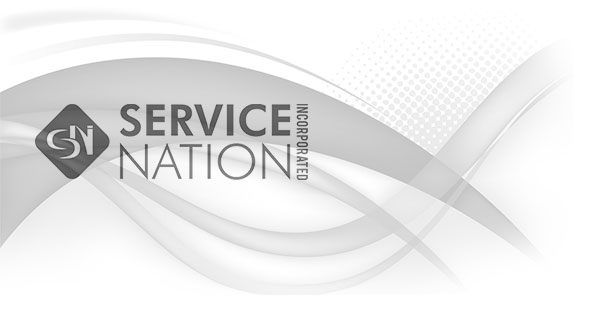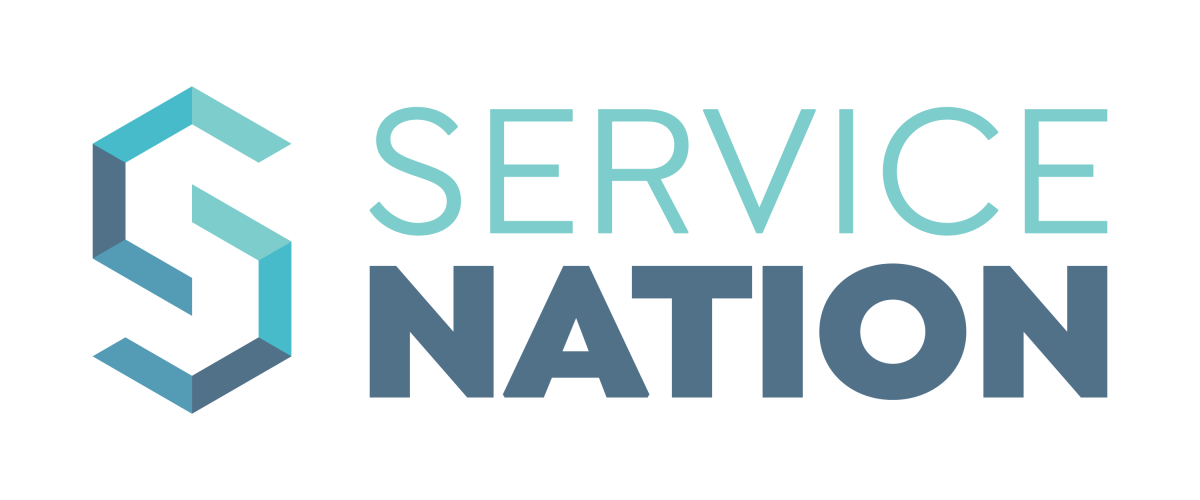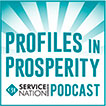Additionally, he’s written 19 industry-specific E-Myth vertical books, co-authored by industry experts. I’m proud to say that Service Nation Alliance member Ken Goodrich is the co-author of the HVAC vertical book. And then I’ve got one other exciting announcement. Michael Gerber will be our keynote speaker at Service World Expo in October in Las Vegas. A chance to listen to Michael Gerber in person, that’s something you don’t want to miss. Also, there will be a book signing. So Michael Gerber, welcome to Profiles In Prosperity.
Michael Gerber: That’s a great question, let me give you the three. The first is that every contractor should be clear about their exit strategy. In other words, preparing their company to be acquired. In short, every company on the planet is a product preparing to be sold. Very few contractors ever think about that until it’s too late. Second, with number one in mind, every contractor should design, build, launch and grow their company to become a world-class franchise prototype, whether they’re going to franchise it or not a great operating product prepared to be successfully replicated dozens upon dozens upon dozens of times. And finally, number three, in order for number one and number two to be done successfully, every contractor should envision their company as a world-renowned economically profound service designed to transform this state of their brand of service with the best interests of their employees, their customers, and the service providers who work in tandem with them in mind.
And that’s the work I’ve been doing for over 45 years, David. To turnkeying some of the most profoundly successful service companies into the best business products on the planet. At our meeting and you mentioned Ken, I’m going to be introducing one of the very best of those Ken Goodrich, a guy who took the E-Myth and applied it, and applied it, and applied it, and applied it. A monumental success hero, who’s repeatedly performed the unbelief. And in the process, Ken’s created 22 world-class HVAC and plumbing firms. Each of which have been acquired.
Think about it, designed, built, launched, and grown, and then just like that sold for millions to venture capitalists. Who has rewarded Ken not only for his genius but for his persistence in pursuing the best better than the best time after time after time. So let me reveal the three in short built it to be sold, voted by the most successful franchise on the planet and {inaudible 04:25} to the people who participate in the process to add extreme value to their lives. That’s why they call me Michael Lee Gerber, author of the E-Myth books. So David, I’m absolutely passionately thrilled to see you in Las Vegas and all the folks listening right now to completely transform your lives.
David Heimer: And Ken is amazing. He is a completely impressive guy. He is the only person that I’ve invited to speak at our meetings twice consecutively and tell the exact same story both times because I thought they were so good. You just don’t do that. But two years running, I wanted him to get up in front of our members and just tell the same story of his success. How he grew his business from nothing into a hundred million dollars. And following the principles that you’ve laid out. I was wondering if you have time. Could we dig into the three principles that you outlined for us?
Michael Gerber: Sure. Well, number one is built to be sold. In other words, there’s an end game. So he started a business with absolutely one thing in mind. He said, I’m going to build it and I’m going to sell it for a million dollars in three years. That’s what he said. I’m going to follow the E-Myth religiously and I’m going to build this turnkey practice and sell it in three years. And in fact he did, not for a million, he sold it for 3 million.
David Heimer: So it’s interesting when you said what you said there, it sounds like he was very specific at the beginning of it, and that kind of specificity. It sounds like it’s something that ought to be formalized or documented. Maybe the owners should write it down, share it with others and then say, when they want to exit, how they want to exit and maybe how much they want to exit for us sitting there doing that. Is there anything else that people should think about when they’re creating their exit plan?
Michael Gerber: Absolutely. And when I said that he made up his mind to do that. He made up his mind to do two things. One to follow the regimen that I provide in the E-Myth revisited, the seven steps, your primary aim, your strategic objective, your organization, your management system, your people development system, your marketing system. And all the other operating systems that are critical for the company to actually work again and again and again every single time.
So you use the word specificity. Specificity is the ballgame and specificity, unfortunately, David is lacking in almost every small company that we ever walked into. There is no specificity. It’s just doing it, doing it, doing it, doing it busy, busy, busy, busy, and everybody who’s listening to this right now knows, they’re guilty of that. So yes, specificity is key. And the first is I’m going to exit this business at some point in the future. I’ve got to be clear about what that point is and for how much. Because unless I have that picture, I can’t organize my company to become that value in the mind of the person who’s going to acquire it.
David Heimer: What have you seen as a good practice about sharing that information? Do you typically see that business owners share their exit plan with their employees? Or do you think it’s a good idea or a bad idea?
Michael Gerber: I think everything is a good idea if it’s specific and it has logic to it. So effectively, you just don’t go rambling around and saying, Hey Jerry, I think I’m going to sell my business. Hey Judy, I think I’m going to sell my business. Hey Jim, I think I’m going to sell my business. You don’t do that because all that does is create chaos. So obviously when you read the E-Myth, what you’ve read in the E-Myth while you believe in the E-Myth so clearly, so consciously, so committed, it’s because it seems like a logical system. Step one, step two, step three, step four, a logical system. It’s not just a rambling series of what if and how wins. It’s a logical system. So every single entrepreneur, would-be entrepreneur, small business owner, contractor. No matter what kind of service they provide, they have to think logically clearly, specifically. And that’s what we have been teaching small business owners to do for over 45 years. And it’s the specificity of it that makes it so damn effective. If it isn’t specific, it’s sort of just somewhat. And if it’s just somewhat, it’s none of the things I talked about in the three things I listed.
David Heimer: With respect to building your company as a world-class franchise prototype, once you’ve done that, and that’s no small feat, but the ability to replicate a business {cross talk 09:26}
Michael Gerber: You just said something, which is a belief, and that is that that’s no small thing. And I’m saying, oh yes, it is. If you follow the rules of the game. The problem is so few business owners even understand the game they’re playing. So they can’t possibly follow the rules of the game because there aren’t any rules of the game that they are playing. In fact, most small businesses are chaotic, absolute chaos. So the very first thing that has to happen is they’ve got to understand the logic of growth, the logic of organization, the logic of branding, the logic of creating a system. And that’s what we’ve been teaching, teaching it, teaching it, teaching it, teaching it, many, many, millions of people read my books.
But let me tell you the great tragedy is they read it perhaps, but then they don’t do it. Ken Goodrich did it. Absolutely did it. And Ken can speak to that in a way that every single person listening to him can feel. But then they need to say, teach me, teach me to do it. And if a person stands up and says, teach me to do it, and then simply becomes an absolutely added student of the great work that entrepreneurship brings to the world. Then something absolutely assuming magic can happen. It’s easy when you do it the right way. It’s incredibly complex when you fumble around.
David Heimer: Good point and when you have accomplished this, you become extremely attractive to buyers and investors.
Michael Gerber: No kidding.
David Heimer: I guess Ken is a great example of that as well. Isn’t he?
Michael Gerber: Oh man. I’m telling him, you think about it. He started the company, he built it for sale, he sold it. He started another one, built for sale, he sold it. He started another one, built it for sale, and sold it. And each and every time he did that, he sold it for more. Do you get what I’m saying?
David Heimer: Yeah. It’s amazing. If you still have time, I wanted to ask a couple of things about your third point. One is that you talk about service providers who work in tandem with the company. I find that really interesting because I’ve been on both sides of the vendor-partner relationship. And sometimes it seems like there’s two parties duking it out and each one trying to best the other one. And in other cases, it feels like it’s two parties working together to improve both businesses.
David Heimer: From the way you described this, I sent you to fall on the side of a positive relationship with vendors and working together to improve their businesses. Is that how you think about it?
Michael Gerber: Absolutely. I mean, it’s a relationship. You get married, you’re in a relationship. It’s not just one person in that relationship. It’s called a relationship because there’s two people in that relationship. He’s got to experience a great relationship just as he’s got to experience a great relationship. This means when you begin that relationship, you have to have a conversation, a serious conversation about what the word relationship means to you, to her, to perhaps your church, to perhaps your synagogue, to perhaps whatever influences there are in your lives to the fact that you’re going to have children. And suddenly you’re going to have new relationships to the fact that those children are going to eventually get married and so forth.
So obviously it requires specificity, it requires commitment, it requires the conviction that I’m here in a relationship with these other folks, each of whom are here in a relationship with me and each other and our job. Our job at the very beginning of this is to design that relationship in such a way that it works for everyone. Because to the degree, I don’t do that, it fails. And it becomes exactly what you described, he gets, what he wants. She gets what she wants. He gets it instead of giving to her, she gets it instead of giving to him. In short, it becomes a conflict. And relationships and conflict are absolutely the opposite of what I’ve described in these three most important things that have to happen in every single company on the planet.
David Heimer: This is absolutely fascinating stuff. Michael, I’m so looking forward to seeing you at the Service World Expo, and thank you so much for your time today. This has been fantastic. I know everybody that listens to this, I hope they will all run out and buy your book if they haven’t read it already. And if they have read it, I hope they will rethink what they’re doing and start executing. Because as you said, read it again and start following it.
Michael Gerber: I met a guy from London, who acquires small businesses. And he said, when he started, he had absolutely no understanding of what a small business really was and how it worked. And he said, somebody gave him my book, the E-Myth Revisited suggested he read it. He said, he has read that book now 20 times that hear me, he reads it every year, reviews it every year. He’s been in business for 20 years and the E-Myth is alive today in that company, as it ever was in year one. So I’m suggesting that every single person who’s listening, who perhaps has read the E-Myth Revisited, pick it up and read it again, pick it up and read it again because you’re going to find stuff you never realized you missed the first time just do it.
David Heimer: Thank you so much. Look forward to seeing you in Las Vegas and I’ll talk to you then.
Michael Gerber: Perfect, David, thank you very much. Take care. Bye-bye.
Outro: We’re always looking for good ideas and interviews for our podcasts. If you have an idea or maybe you think you should be interviewed, just shoot an email to profilesinprosperity@serviceroundtable.com. That’s profilesinprosperity@serviceroundtable.com. If you think what we’re doing has any value, it would be very helpful if you would give us a great rating on iTunes. Thanks for your support. Hope to see you again soon. Bye.





 (877) 807-0869
(877) 807-0869 Member Login
Member Login

